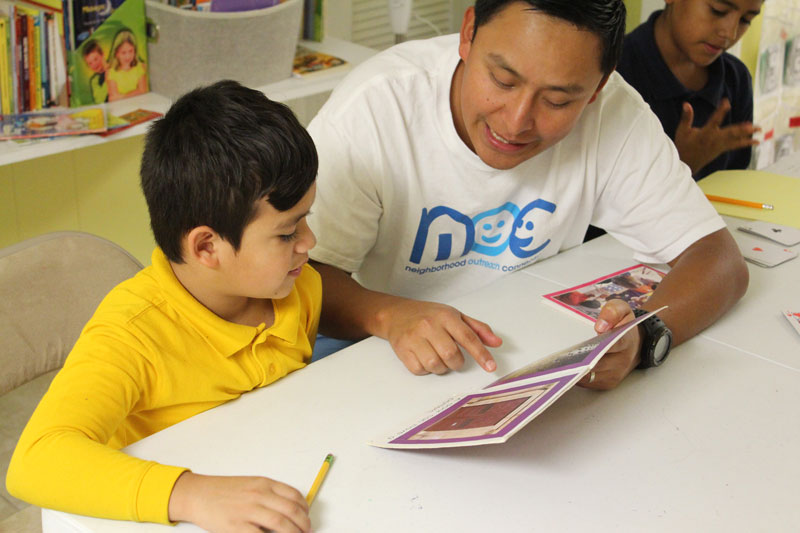
COLUMBIA—Three neighborhoods in Beaufort County that are home to mostly Hispanic immigrants are part of Narenda Sharma’s ongoing efforts to help poor families leave poverty behind.
He is founder and director of the Neighborhood Outreach Connection, a non-profit organization that helps low-income people around the Hilton Head and Beaufort areas.
“We see our mission as fighting poverty by empowering individual families to work for the American dream,” he said. “We teach people to fish, as they say, and through that we create independence and self-reliance and ultimately success.”
This year, Sharma’s organization was one of 10 in the state that benefited from grant money provided by the Immigrant Families Initiative, a program launched in 2014 by the Sisters of Charity Foundation of South Carolina.
The program provides grants that help non-profits like Sharma’s that work with immigrants and refugees. Since it launched, the initiative has provided more than $400,000 to help immigrants with basic needs such as food and housing, education, access to health care, legal services and community empowerment.
Sharma said the money that Neighborhood Outreach received this year will help with everything from English and financial literacy classes to health screenings and after-school programs for residents in those three neighborhoods.
That is exactly the kind of assistance that organizers hoped to fund when the program was launched three years ago, said Stephanie Cooper-Lewter, vice president of initiatives and public policy for the Sisters of Charity Foundation and leader of the Immigrant Families Initiative, which was started as a result of research and discussions with people working at the grassroots level with immigrants in this state.
Statistics show that immigrants make up 5 percent of South Carolina’s population, with the majority coming from Latin America, followed by Asia and Europe. For many of these families, a little assistance can go a long way in helping them become self-sufficient.
Confusion and fear over legal issues is one of the main obstacles many newcomers face as they try to begin new lives in the United States. Money from the initiative also provides help for immigrant families trying to navigate the often confusing pathways of the U.S. legal system.
A grant this year helped Catholic Charities hire an additional attorney to work with clients in Mount Pleasant, according to Emily Guerrero, director of immigration services for Catholic Charities.
“The demand for our services is extremely high, so the grant money has been very helpful to us,” Guerrero said. “The new attorney is one of four around the state who help people apply for permanent residency, citizenship, and work permits, and she also helps with educating the immigrant community on these issues.”
Another group that has benefited is Lutheran Services of the Carolinas, which has helped resettle refugees from the Democratic Republic of the Congo, Honduras, El Salvador, Eritrea, and Burma in South Carolina.
They have also helped resettle special immigrant visa holders from Afghanistan and Iraq — people who face persecution and danger because they previously worked with U.S. forces in those countries.
Most of the refugees live in Columbia and Charleston.
Lutheran Services used grant money from the initiative this year to hire additional employees, who in turn have worked with businesses to encourage them to hire the new refugees.
“We have a very small team, and that additional staff is able to help us reach out to prospective employers,” said Bedrija Jazic, director of refugee services with the Lutheran group.
“Ninety-five percent of the refugees we worked with in the past year were employed within their first six months of arriving,” she continued. “And that is important because gainful employment enables them to take care of themselves and their families, to form relationships in the community and not depend on charity.”
Photo provided by Sisters of Charity Foundation of South Carolina: A volunteer with the Neighborhood Outreach Connection, a non-profit organization that helps low-income people around the Hilton Head and Beaufort areas, works with students in the after-school program.

